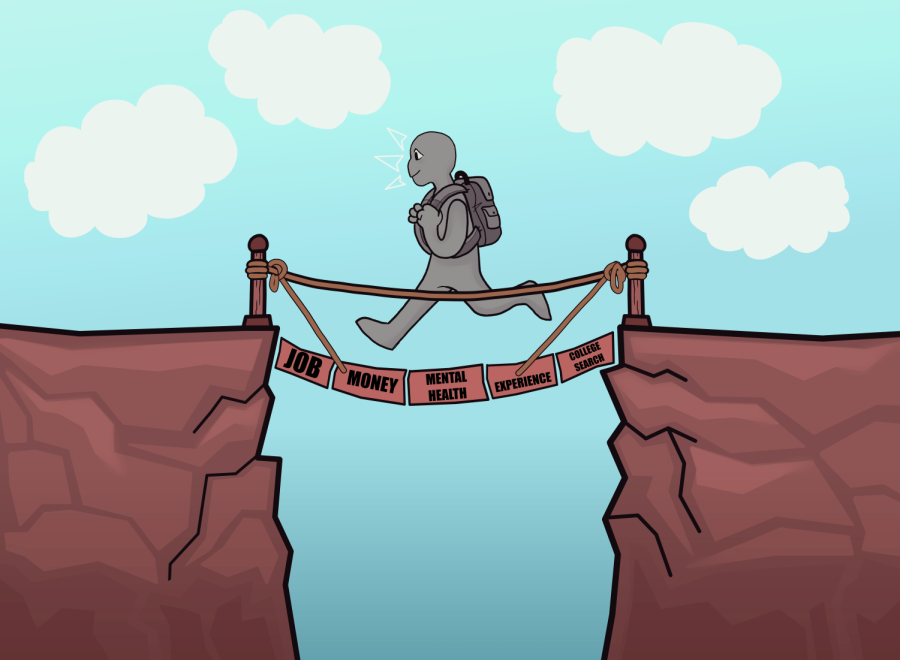Mind the gap: Why high school students should take a break before taking on the world
March 11, 2023
When considering a gap year, high school students may have a range of thoughts and feelings based on their circumstances and priorities. Some students may need more time to explore their interests, gain life experience or develop academic skills before starting college.
Others feel uncertain about their academic or career goals and want to take a gap year to explore different fields or gain practical experience. Additionally, some students may be interested in taking a gap year to work and save money for college or avoid burnout, or to travel before starting college. At the same time, students may worry about what their peers or parents may think of their decision to take a gap year.
Most high schools teach a predetermined curriculum and expect students to adhere to strict rules and schedules, making it difficult for students to develop autonomy and self-direction. Taking a gap year may help them to develop these skills, which are essential for higher education and the workforce.
Despite the potential challenges and uncertainties that may come with taking a gap year, many individuals find it a transformative and rewarding experience that allows them to become more well-rounded, empathetic and adaptable. By taking a leap of faith and pursuing their passions, they may discover new aspects of themselves that they never knew existed and return to their studies or careers with renewed motivation and focus.
Taking a gap year was one of the best decisions I ever made. It provided me with the opportunity to step outside of the box and pursue my interests and passions.The connections I made during my gap year have proven invaluable in helping me achieve my academic and career goals. By establishing relationships with professionals in my field of interest, I have gained insight into the job market and received guidance and support as I pursue my dreams.
In addition to gaining rewarding experiences, a gap year can allow individuals to network and make connections within their desired field. This can help them better understand the job market and identify potential mentors who can offer guidance and support as they pursue their career goals. Additionally, by taking a break from the traditional academic path, individuals can avoid burnout and return to their studies or careers with renewed motivation and focus.
But not everyone will find meaningful ways to spend their time during a gap year. One potential downside of taking a gap year is the risk of losing academic momentum. A year away from the classroom may make it more difficult for students to re-engage in their studies once they return to school. It may also mean missing out on opportunities for academic and extracurricular growth.
Additionally, gap years that involve travel or other expenses are costly, which may not be feasible for students from low-income backgrounds. It is important for a student to weigh the potential costs against the benefits and should work to develop a clear plan for how they will spend their time during their gap year.











































































































